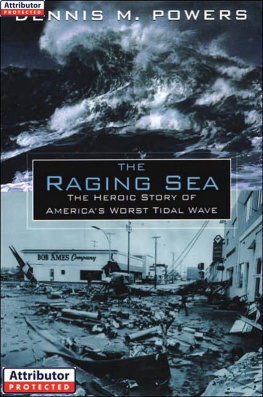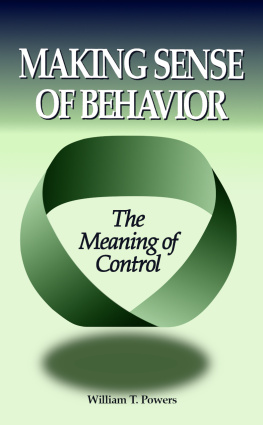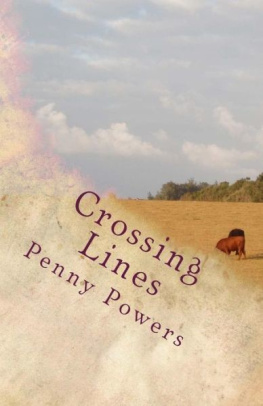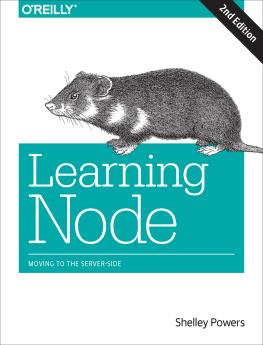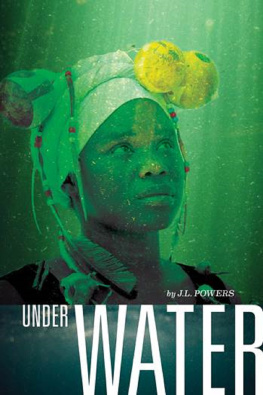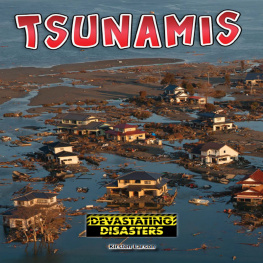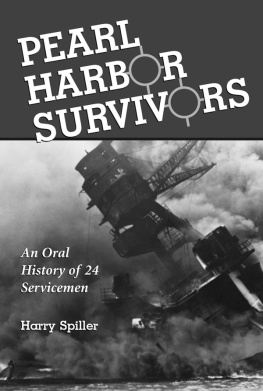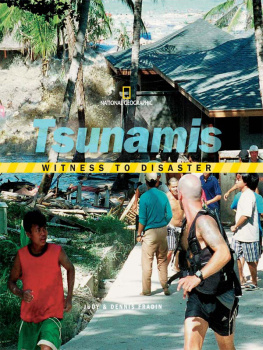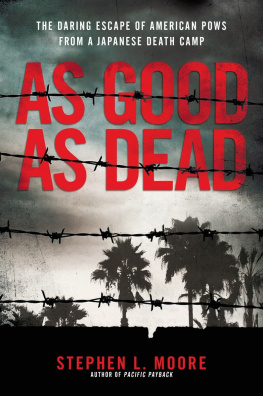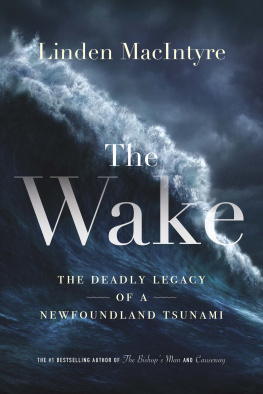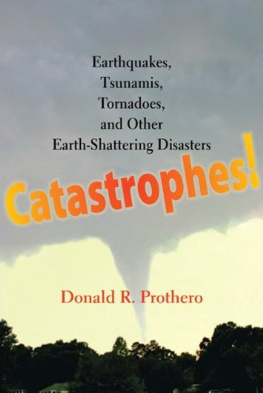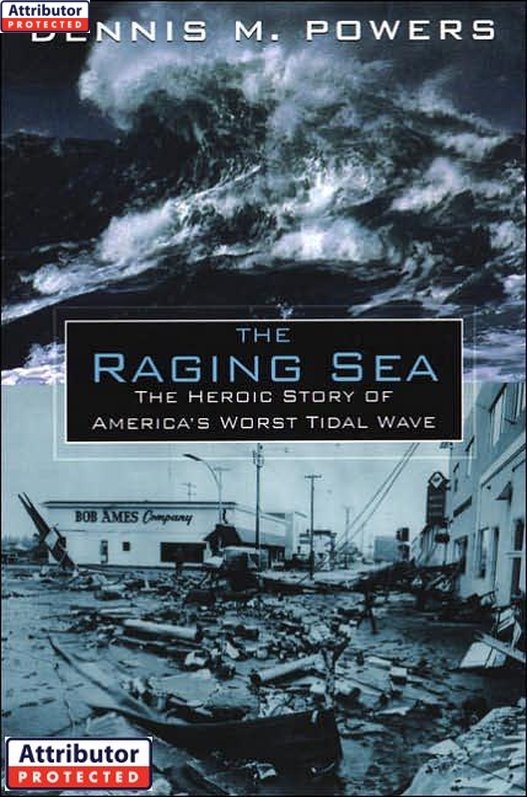ACKNOWLEDGMENTS
T HIS BOOK would not have been possible without the friendship, help, and generous support over the years of Wally and Lillian Griffin and their business, Crescent City Printing Company. In addition to providing pictures for this publication and releasing photographs not seen before by the general public, as well as recommending people to interview, Wally Griffin was very gracious in his support, including allowing me full access to the information contained in his book, Dark Disaster , copies of which are also available from the Del Norte County Historical Society in Crescent City.
Carol Cleveland and the Del Norte County Historical Society receive high marks, as well; I thank Carol for her friendship and help in acquiring photographs and their release for publication. Bill Parker stands out, not only for his interviews, but also for reviewing portions of this manuscript and giving appreciated advice. Tom Sokolowski, the long-time head of the West Coast/Alaska Tsunami Warning Center in Parker, Alaska, and Paul Whitmore, its present chief, were helpful with their input on the WC/ATWCs operations. Tom also made appreciated suggestions on the manuscript. A professor in Environmental Studies, Eric Dittmer, of Southern Oregon University provided valuable assistance in understanding tsunamis, especially with respect to Crescent City and its vulnerability. And my appreciation is extended to a friend, Chris Honore, who also reviewed portions of this manuscript and made helpful comments.
I thank Gary Clawson and his wife, Carole, for their time, graciousness, and help. It was my pleasure to get to know them. I appreciated interviewing and/or meeting: Bill Peepe, Bob and Mary Jean Ames, Bill Stamps, Guy Ames, Ernie Pyke, Doug Pyke, Don Mather, Ruth Long, Joan and Bud Clark, Merv and Margo McGuire, Ray Shalk, Roy Magnuson, Richard Weir, Jim and Sophia Hooper, not to mention again Carol Cleveland, Wally and Lillian Griffin, Gary Clawson, and Bill and Boots Parker. With sadness I note that Jim Hooper, Ernie Pyke, and others passed away after my interviews with them. Jim Hooper and his wife, Sophia, met me for lunch in Ashland, and Jim sent me copious notes and information concerning the rebuilding of Crescent City.
I grew fond of the people I met during my research for this book, and of Crescent City itselfit is a city with which we all can identify, as older residents hand over their knowledge and experiences to new generations. I take my hat off to all of you and send you my very best, as always.
I must thank the staff, publishers, and editors (past and present) of the Triplicate in Crescent City for their help, information, and courtesies, and access to past issues and information contained in their newspapers stories. I also appreciated the help of the staff at the facilities of the Pacific Tsunami Warning Center in Ewa Beach, Hawaii, and the U.S. West Coast/Alaska Tsunami Warning Center in Palmer, Alaska.
My special thanks to the Editor-in-Chief at Kensington Publishing, Michaela Hamilton, for her unwaveringly positive attitude and professional suggestions. As always, I must thank my agent, Jeanne Fredericks. Jeanne, we have worked together for years, and it has always been such a pleasure to know you, your husband Wes, and your family.
Last, but never least, I so appreciate the help and support of my wife, Judy, who accompanied me on countless trips to Crescent City, who loved talking with Wally and Lillian, but afterwards never ran out of books to read, whether it was inside during a cold rain or outside in the warm sunshine. In fact, by the time this project was completed, we had traveled in three different carsand we generally keep a car for at least five years. She is the best!
SIMPLICITY OF LIFE
T HE BRILLIANT California sun was a bright red ball, nestling toward the horizon with reddish-yellow streaks painted over the oceans light blues. Seagulls sailed over the beach, shrieking with sharp cries. Squat boats dotted the waters, securely tethered to buoys and seemingly motionless in the low tide. On board a few of the large commercial fishing boats, fishermen still tended their nets or equipment. Close to calling it quits for another day, they were ready to join the rest who had already headed home to start the weekend or now sat with drink in hand at their customary places in their favorite bars. It was Friday, March 27, 1964, and this day had been like any other oneexcept that today was Good Friday and it had been a particularly fine spring day.
From shore, Gary Clawson stared at a lonely figure rowing his skiff from the moored boats toward land. Another fisherman from a distance called faintly to the man, but the rower paid no heed. His motion appeared effortless, as the strokes continued rhythmically and the small waves gently lapped against the smaller boat. Spotted with driftwood, logs, and debris, the beaches fanned away on both sides. Thrown against the land by the fierce winter storms that had pounded onto land from the northwest, huge redwood logs littered the scrub brush and sand. A few blocks past the sandy, mottled land stretched the main part of town with its weather-beaten, rustic structures.
The beach curved for twelve miles, its boundaries marked by two doglegged breakwaters. These rock-filled steel and concrete aprons protected the docks within, filled with moored sailboats, speedboats, skiffs, fishing boats, a huge lumber barge, and an occasional thirty-foot trawler. Gorged with runoff from the heavy spring rains, the Elk River pounded into the ocean and split the bay in half. The noise of passing cars from Highway 101 echoed behind Gary and mingled with the sounds of the birds and sea, as the vibrant green shrubs and ocean blues contrasted sharply against the bleakness of the adjacent one-story, worn-wooden buildings and multicolored houses. The smell of the ocean blended with that of the city and its passing cars.
After following the bays contours, the inland highway turned abruptly toward the mountains, splitting the area between houses and buildings on one side and open fields spotted with trees, structures, and lumberyards on the other. Motorists sped by in both directions, on their way to their homes or motels, or just passing through.
Gary Clawson had grown up in Crescent City, and like most long-term residents he knew many of those in town. A small Northern California coastal city of three thousand, Crescent City was located fifteen miles south of the Oregon border in a rugged, wooded area surrounded by redwood, spruce, and pine trees. Highway 101 connected it with other California and Oregon coastal communities, as mountain ranges paralleled the cities, beaches, and the broad Pacific Ocean.
Clawson studied the rowing man as he neared a dock, and then looked back towards the horizon. Both men gazed out as the sun disappeared into the sea, and as if by magic, the ocean swallowed the daylight to leave a stark gray sky that would soon fade into darkness. Overhead, the moon cut a strong outline with two evening stars already out, barely visible but twinkling.
Gary Clawson knew that a bright full moon would be out tonight. The air would soon become chilly, and the temperatures on this March night would again be in the high 40s, maybe low 50snot bad for this time of the year. From the clearness of the sky, he knew that there wouldnt be a blanket fog rolling in later this evening to envelop the town and its people. The groves of trees that lined the surrounding mountains were motionless from the lack of a breeze. Yes, it would be another quiet night.

